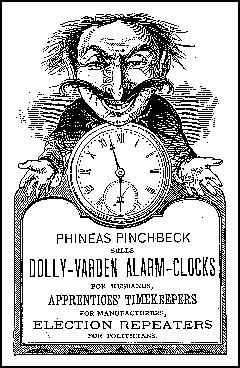Seven Dials
Mystery
Agatha Christie
Read by Emilia Fox
(Audio Partners)

If I was trying to read this in my bed I'd probably drift right off to sleep. The thirty or more characters are confusing, especially in the first three chapters and --- except for the servants, who abound (maids, butlers, private secretaries, gardeners, assistant gardeners, nannies) --- most of the upper class characters are impossible to tell apart.
The younger male characters we meet here, even the ones about to be murdered, are uniformly described as "imbecile," "stupid," or "ass," as in "That Jimmy Thesinger. He's an ass." These young and rich don't seem to manage to rise from their beds until eleven AM or so, and any time there is some kind of a bother they immediately call for a cocktail. No one seems to do anything at all except drink, sleep, and make droll English talk.
One of these upper-class loafers, Gerry Wade, seems more than usually fond of bed: more than all the rest put together. He likes it so much that he is placed to sleep forever by Dame Christie --- someone had slipped an overdose of sleeping potion in his whisky and he was soon enough a goner.
 The dialogue between Bundle and her father is dry, your regular English drollery. She sets out on her own to solve the double murders. Lord Caterham would rather not be bothered. "I don't like anyone who comes and dies in my house on purpose to annoy me," said Lord Caterham. "Most awkward," he complains, "people going about killing each other."
The dialogue between Bundle and her father is dry, your regular English drollery. She sets out on her own to solve the double murders. Lord Caterham would rather not be bothered. "I don't like anyone who comes and dies in my house on purpose to annoy me," said Lord Caterham. "Most awkward," he complains, "people going about killing each other."
"I've always led a very respectable God-fearing life," [he says]. "It seems extraordinary, considering how little harm I do to anybody, that I can't be let alone."
The murder plot line, in keeping with almost every other mystery ever written since the days of Poe, is a muddle. Since the various "asses" --- a favorite word --- are so hard to tell apart, it comes to be somewhat confusing when we try to figure who has murdered who and why. The final chapters, typically, are spent with Superintendent Battle of Scotland Yard explaining everything to Bundle and the reader. "Oh dear, I never realized what a terrible lot of explaining one has to do in a murder!" said Dame Christie, later in her life.
But it is peculiar, no? That a book about one or two persons strangling or shooting or running over other people is considered an entertainment, a diversion, useful to while away the hours. "What did you do last night?" "Oh, I wanted to relax, so I read this book where they poisoned a young Englishman and shot another one in the head then when this young lady goes to the Seven Dials District of London to find out who did it, she gets bopped on the head and knocked out."
It reminds one of rap music. It is a music that is singularly angry, violent, and sexist. "I'm gonna get ya and beat ya bitch/Ya ain't gonna fuck wi' me no more bitch." Yet rap, leached of its original rawness, is now turning up everywhere. Like the "murder mystery" form, it has been coöpted as commercial entertainment. There is Norwegian Rap and Japanese Rap, Hebrew Rap, Slovenian Rap and for God's sake, Christian Rap.